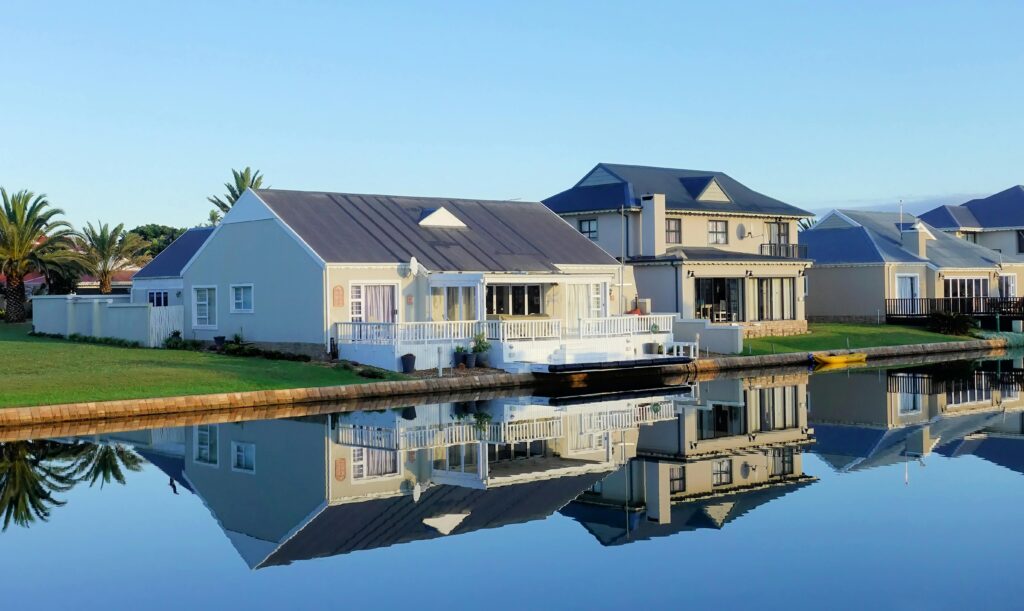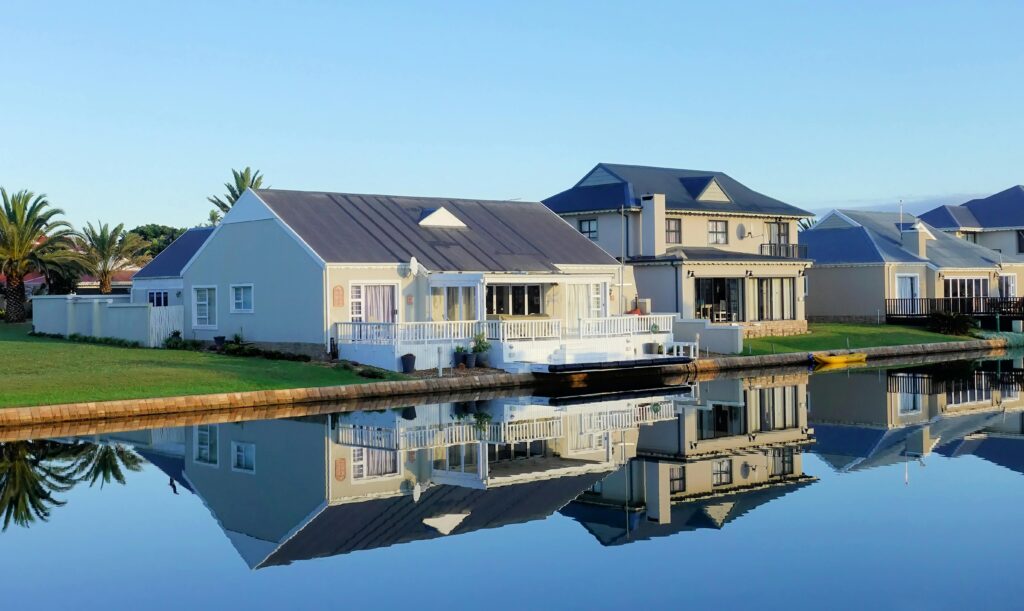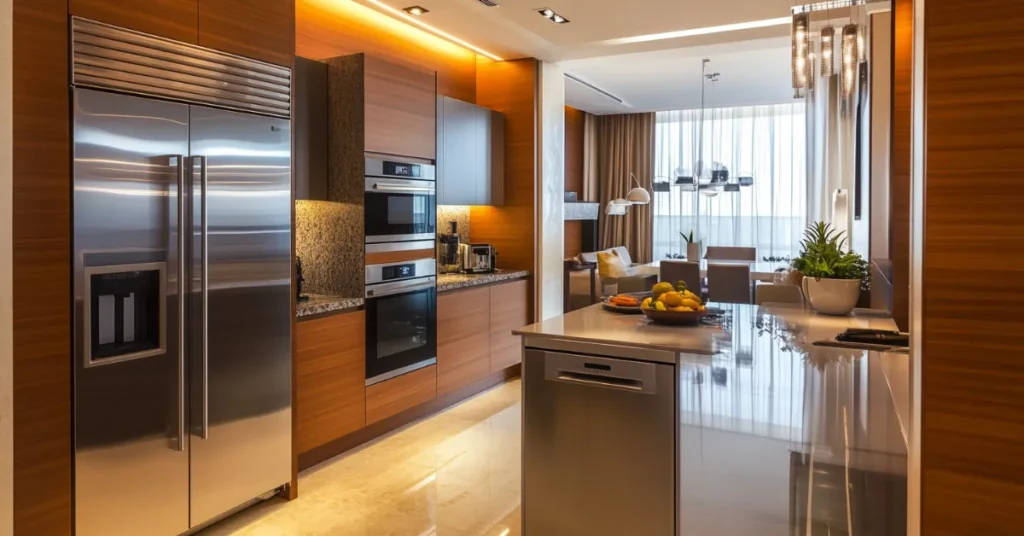Starting an Airbnb business is a high-octane opportunity to generate cash flow, dominate the short-term rental market, and build wealth.
But let’s cut through the noise—how much does it cost to start an Airbnb, and is it profitable?
Whether you’re eyeing a single rental property or scaling to a portfolio of Airbnb listings, understanding the Airbnb startup cost is your first step to crushing it.
With the right strategy, like the proven systems taught by 10XBNB, you can turn an Airbnb property into a cash-flowing machine.
This Airbnb Business article breaks down every cost, revenue potential, and insider tip to ensure you’re not just starting an Airbnb but building an empire.
What Is the Airbnb Startup Cost?
How much does it cost to start an Airbnb business? The Airbnb startup cost is the total investment required to launch a short-term rental business on the Airbnb platform.
This includes upfront expenses like furnishing an Airbnb property, ongoing operating expenses like cleaning fees, and strategic investments to maximize guest experience and bookings.
Costs vary based on location, property type, and whether you own, lease, or use rental arbitrage. For first-time hosts, the range typically falls between $5,000 and $50,000, depending on your approach.
Introduction to Airbnb Startup
Starting an Airbnb business can be a lucrative venture, but it requires careful planning and consideration of various factors.
As an Airbnb host, you’ll need to invest time and money into preparing your rental property, managing bookings, and providing a great guest experience.
The average Airbnb host earns around $9,600 annually, but this figure can vary greatly depending on factors such as location, property type, and pricing strategy.
To succeed in the short-term rental business, it’s essential to understand the costs involved, including startup costs, monthly expenses, and operating expenses.
By grasping these financial aspects, you can better plan your investment and ensure a profitable venture.

Why Airbnb Startup Costs Matter
Underestimating costs can cripple your cash flow before you even welcome your first guests. Overestimating can scare you away from a lucrative opportunity.
By mastering the numbers, as taught in 10XBNB’s free guide, you can plan with precision and avoid rookie mistakes. Let’s break down the costs so you can start an Airbnb with confidence.
Upfront Costs to Start an Airbnb
1. Property Acquisition or Lease
The biggest chunk of your Airbnb startup cost is securing the property. Home prices significantly impact the initial investment required for property acquisition, as higher property values mean a larger upfront cost.
You’ve got options: buy a rental property, sign a long-term lease, or negotiate rental arbitrage. If you’re buying, the purchase price and interest rate on your monthly mortgage payment will dictate your upfront investment.
For leasing, expect to pay first and last month’s rent plus a security deposit—typically $2,000 to $10,000. Rental arbitrage, a strategy 10XBNB champions, lets you lease a property and sublet it on Airbnb, minimizing your initial outlay.
2. Furnishing and Setup
An Airbnb property needs to wow guests to earn great reviews and more bookings. Furnishing costs range from $3,000 for a studio to $20,000 for a multi-bedroom home.
Essential items like kitchen utensils are also part of the one-time purchases needed to equip the space.
Think beds, sofas, kitchen appliances, and decor that screams “Instagrammable.” Check out 10XBNB’s furnishing checklist for a step-by-step plan to create a guest-ready space without overspending.
3. Essential Supplies
Guests expect more than a roof over their heads. Stocking your Airbnb with essential supplies like toilet paper, paper towels, towels, and toiletries is non-negotiable.
Budget $200 to $500 upfront, with monthly expenses of $50 to $150 to replenish. These small touches drive guest reviews and repeat bookings.
4. Technology and Streaming Services
Modern Airbnb guests demand Wi-Fi, smart TVs, and streaming services like Netflix. Expect to spend $500 to $1,000 on tech setup, plus $50 to $100 monthly for subscriptions and high-speed internet.
This investment ensures a seamless guest experience, boosting your Airbnb listing’s appeal.
5. Insurance and Damage Protection
Regular homeowner’s insurance won’t cut it for an Airbnb business because it does not address the unique risks associated with renting properties to guests.
It is crucial to have comprehensive insurance coverage, including Airbnb’s AirCover, which offers liability and damage protection.
You’ll need liability insurance and damage protection to cover property damage or guest injuries. Airbnb’s AirCover provides some protection, but additional insurance costs $500 to $2,000 annually.
Factor this into your Airbnb startup cost to safeguard your investment.
Ongoing Operating Expenses
6. Cleaning Fees
Cleanliness is king in the short-term rental business, and hiring a professional cleaning service is crucial for maintaining cleanliness and ensuring quick turnovers between guests. Professional cleaning services cost $50 to $200 per turnover, depending on property size and location.
Airbnb hosts can pass some of this cost to guests via cleaning fees, but you’ll still need to budget for consistent upkeep to maintain stellar guest reviews.
7. Service Fees
Airbnb charges hosts a service fee—either a host-only fee (14-16% of the booking subtotal) or a split fee shared with guests (3-5%). These fees eat into your profit margin, so factor them into your pricing strategy to ensure healthy cash flow.
8. Utilities and Maintenance
Running an Airbnb property means covering utilities like electricity, water, and gas, plus maintenance like snow removal or lawn care. Monthly expenses typically range from $200 to $600. If you’re in a condo, add HOA dues ($100 to $500 monthly) to your operating expenses.
9. Property Management Software
Scaling your Airbnb business requires efficiency. Property management software like Guesty or Hostaway streamlines bookings, pricing, and guest communication. Expect to pay $20 to $100 monthly, a small price for maximizing revenue potential and minimizing headaches.
10. Marketing and Social Media
To stand out, promote your Airbnb listing on social media platforms like Instagram or TikTok. Budget $100 to $500 monthly for ads or professional photography to attract potential guests.
A killer listing with high-quality photos can drive more bookings and justify a higher nightly rate.
Location Impacts Airbnb Startup Costs

Location is everything in the short-term rental game. The number of listings in a high-demand market can significantly impact startup costs and revenue potential.
An Airbnb property in a high-demand market like Miami or Nashville will cost more to start but offers higher revenue potential.
Rural areas may have lower startup costs but fewer guests. Research local laws, as some cities restrict short-term rentals, impacting your ability to operate. 10XBNB’s strategies help you pick locations that maximize cash flow while staying compliant.
Rental Arbitrage: A Low-Cost Way to Start
Owning a property isn’t the only way to start an Airbnb. Rental arbitrage—leasing a property and listing it on Airbnb—slashes your startup cost.
You’ll pay a monthly lease ($1,000 to $3,000) instead of a purchase price, freeing up capital to invest in furnishings and guest experience. Additionally, consider whether you will manage the property independently or require a co-host to assist in managing the property and ensuring successful hosting. 10XBNB’s proven arbitrage model has helped thousands launch their Airbnb business with minimal upfront investment.
Financing Your Airbnb Startup
11. Mortgage or Loan Payments
If you’re buying a rental property, your monthly mortgage payment depends on the purchase price and interest rate. The monthly payment is crucial in determining cash flow and overall profitability. A $300,000 property with a 6% interest rate means roughly $1,800 monthly. Factor this into your Airbnb expenses to ensure positive cash flow.
12. Personal Savings or Investors
Many Airbnb hosts use personal savings to cover startup costs. Others partner with investors or use platforms like Fundrise to raise capital. 10XBNB’s free guide shows you how to pitch to investors and secure funding like a pro.
Local Regulations
Before starting your Airbnb business, it’s crucial to familiarize yourself with local regulations and laws governing short-term rentals. These regulations can vary significantly depending on your location, so it’s essential to research and understand the specific requirements for your area. Some cities may require property owners to obtain a permit or license to operate a short-term rental, while others may have restrictions on the number of guests or the type of properties that can be rented. As an Airbnb host, you’ll need to ensure that you’re complying with all local regulations to avoid fines or penalties. Staying informed about local laws not only protects your business but also helps maintain a positive relationship with your community.
Is It Profitable to Run an Airbnb?
Hell yes, it can be profitable—if you do it right. Analyzing various financial factors makes sense to determine if pursuing short-term rentals is a viable choice.
The average Airbnb host earns $14,000 annually per property, but top performers using 10XBNB’s systems pull in $50,000 or more. Profitability hinges on three factors: controlling Airbnb startup costs, optimizing your nightly rate, and maximizing occupancy. A well-run Airbnb property in a prime location can yield a 20-40% profit margin, blowing traditional rentals out of the water.
Pro Tip: Optimize Your Nightly Rate
Dynamic pricing is your secret weapon. Use tools like PriceLabs to adjust your nightly rate based on demand, ensuring you capture every dollar of expected revenue. 10XBNB’s training teaches you how to price like a pro, balancing occupancy and profit.
Hidden Costs to Watch For
13. Taxes
Short-term rental income is taxable. You’ll pay federal and state income taxes, plus local occupancy taxes in some areas. Budget 20-30% of your revenue for taxes and consult a CPA to maximize deductions.
14. Repairs and Property Damage
Guests can be tough on properties. Budget $500 to $2,000 annually for repairs or property damage not covered by insurance. Proactive maintenance keeps your Airbnb property in top shape and prevents costly surprises.
15. Guest Amenities
To compete, offer amenities like coffee makers, board games, or bikes. These add $200 to $1,000 to your Airbnb startup cost but drive great reviews and repeat guests.
Additionally, hosts should be prepared for other expenses such as ongoing maintenance, utilities, and subscriptions, which can significantly impact profitability.
Guest Experience
Providing a great guest experience is critical to the success of your Airbnb business. This includes ensuring that your rental property is clean, comfortable, and well-maintained, as well as providing excellent customer service and responding promptly to guest inquiries.
You’ll also need to consider the amenities and services that you’ll offer to your guests, such as Wi-Fi, streaming services, and cleaning fees. By focusing on providing a great guest experience, you can increase the likelihood of receiving positive reviews and attracting more bookings. Happy guests are more likely to leave glowing reviews, which can significantly boost your Airbnb listing’s visibility and appeal.
Business Planning
Creating a comprehensive business plan is essential for any successful Airbnb venture. This plan should include details on your startup costs, monthly expenses, and expected revenue, as well as strategies for marketing and managing your rental property.
You’ll need to consider factors such as your target market, pricing strategy, and competition, as well as the services and amenities that you’ll offer to your guests. By developing a well-thought-out business plan, you can help ensure the success and profitability of your Airbnb business.
Additionally, you can use property management software to streamline tasks and maximize your profit margin. A solid business plan acts as a roadmap, guiding you through the complexities of the short-term rental market and helping you make informed decisions.

Pros of Starting an Airbnb
- High Cash Flow: Short-term rentals often outperform long-term leases.
- Scalability: Add more properties to grow your Airbnb business.
- Flexibility: Use the property yourself when it’s not booked.
- Renting Benefits: Renting out properties on platforms like Airbnb can be a lucrative business opportunity, offering a significant return on investment compared to traditional long-term leases.
Cons of Starting an Airbnb
- Time-Intensive: Managing guests and cleaning can be demanding without a property manager.
- Regulatory Risks: Local laws may restrict short-term rentals.
- Requires Hosts: Operating a short-term rental business often requires hosts to obtain specific permits and licenses based on local laws. Staying informed about these regulations is crucial to avoid unexpected costs and fines.
- Variable Income: Seasonality can impact cash flow.
How 10XBNB Supercharges Your Airbnb Startup
Why struggle when you can dominate? 10XBNB’s training program is the ultimate shortcut to Airbnb success. From picking the perfect property to hiring a property manager (check out these questions to ask), 10XBNB equips you with battle-tested strategies to minimize costs and maximize profits. Their students have transformed single properties into six-figure businesses, and you can too.
Scaling Your Airbnb Business
Once your first Airbnb listing is cash-flowing, it’s time to scale. Buy an existing Airbnb business for sale (learn how) or add more properties through arbitrage. Reinvest profits to grow your portfolio, and use 10XBNB’s systems to streamline operations.
What If You Want to Exit?
If life changes, you can sell your Airbnb property or business. A well-run Airbnb increases property value, making it an attractive investment for buyers. 10XBNB’s guide on selling your Airbnb host property shows you how to exit with maximum profit. For a smooth transition of ownership, refer to Airbnb Listing to New Owner: A Step-by-Step Guide.
Pro Tip: Hire a Property Manager

For hands-off hosting, hire a property manager to handle guest communication and cleaning. They charge 10-20% of revenue but free up your time to scale. 10XBNB’s training helps you vet managers to ensure they deliver.
How Much Money Do You Need to Start an Airbnb?
For a single Airbnb property using rental arbitrage, $5,000 to $10,000 covers leasing, furnishing, and initial expenses. Buying a property requires $20,000 to $50,000 upfront, depending on the purchase price and financing. With 10XBNB’s strategies, you can start lean and scale fast, turning a small investment into massive cash flow.
Final Thoughts: Take Action Now
The Airbnb startup cost is your ticket to financial freedom, but only if you act. Don’t let analysis paralysis hold you back. Join 10XBNB’s program, follow their proven playbook, and start your Airbnb business today. The short-term rental market is red-hot, and there’s never been a better time to claim your slice of the pie. Get in, get profitable, and get ready to 10X your wealth.













